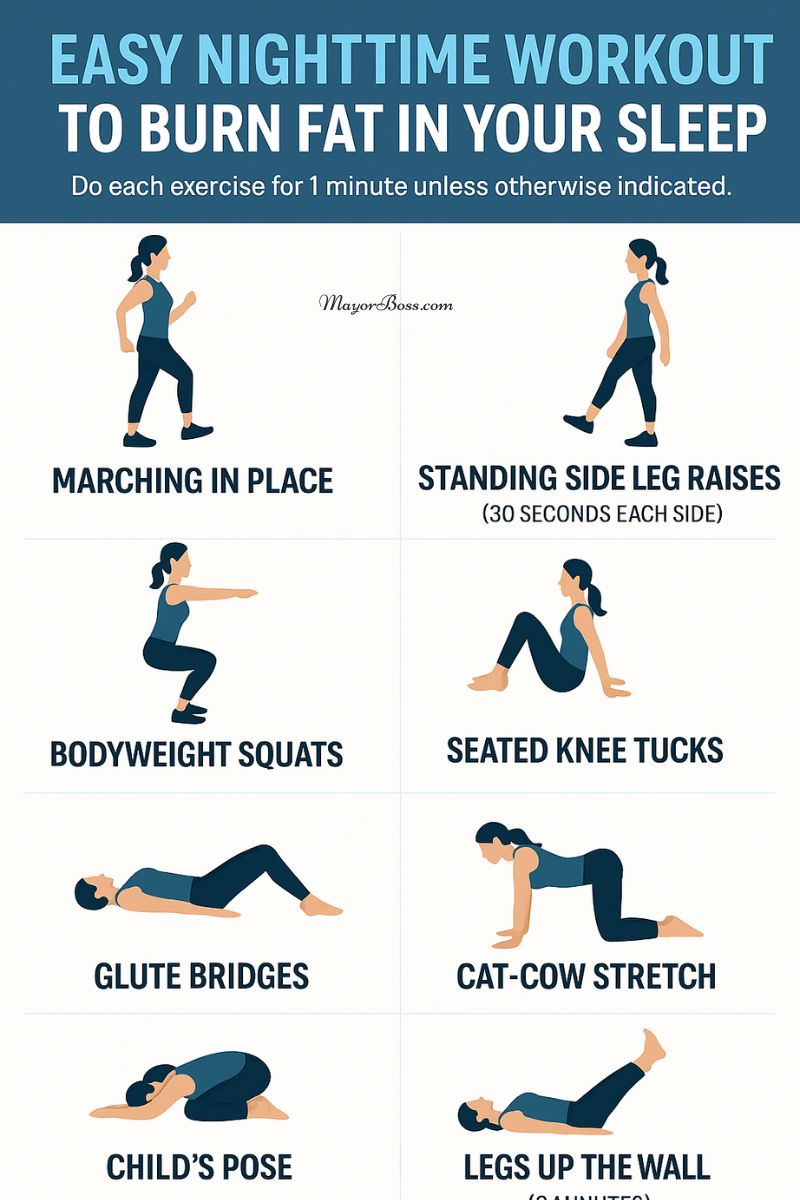5 Things That Make You Gain Belly Fat
You may have heard of certain culprits when it comes to gaining belly fat. However, what if we told you that it’s not just about eating too much? There are several factors, some less obvious than others, that contribute to the accumulation of belly fat. Below are the top five things that may be causing you to gain belly fat.
The Things That Make You Gain Belly Fat
1. Sugary Foods and Beverages
Many people know that eating a lot of refined sugars can lead to weight gain, but did you know that they can also be a significant factor in gaining belly fat? Foods like pastries, candies, and soft drinks contain an excessive amount of sugar, which increases the likelihood of gaining extra fat in the belly area.
In some cases, even “healthier” options such as fruit juices contain just as much sugar as soda, leading to similar results. Therefore, if you’re trying to lose belly fat, reducing your intake of these sugary foods and drinks should be your first step.

2. Alcohol
Alcohol, consumed all over the world, has various health implications if not taken in moderation. Some of these impacts include weight gain, specifically belly fat. It’s known to some as the “beer belly.” Depending on the amount consumed, alcohol can lead to belly fat by reducing your metabolism, making it harder for your body to burn fat.
In studies, it was found that heavy drinking leads to significant weight gain, especially around the waist. Thus, moderation is key when it comes to alcohol consumption.

3. Lack of Physical Activity
One should understand that a sedentary lifestyle can also be a leading factor in gaining belly fat. In our modern world, many jobs require long hours of sitting, leading to decreased physical activity. This inactive lifestyle can cause weight gain, especially around the waistline.
If you’re facing such a situation, introducing a regular exercise routine into your life can help. Even simple activities like walking or biking can make a significant difference in reducing belly fat.
4. Inadequate Sleep
In some cases, not getting enough sleep can also lead to weight gain, including belly fat. Sleep plays a significant role in various aspects of health, including your weight. Research suggests that individuals who don’t get adequate sleep tend to gain excess abdominal fat more than those who do.
In animal studies, it was found that lack of sleep can alter the normal functioning of hormones that control hunger and appetite, thus leading to weight gain. If you notice that you’re not getting enough sleep and are gaining weight, you may want to consider adjusting your sleep schedule.
5. High-Stress Levels
Living in constant stress is another factor that can contribute to belly fat. Stress triggers the body to produce cortisol, also known as the “stress hormone.” Increased levels of cortisol have been associated with weight gain, specifically around the belly area.
Managing stress, therefore, is a crucial component of weight management. Techniques such as yoga, meditation, or even simple deep-breathing exercises can help manage stress levels and, thus, assist in controlling belly fat.
Preventing weight gain and reducing belly fat can be a challenge, especially with so many contributing factors. However, understanding these five factors is a good starting point. Lifestyle changes like reducing alcohol and sugar consumption, increasing physical activity, ensuring adequate sleep, and managing stress are beneficial for weight management.
So, give these tips a go to reduce belly fat and get healthier. If you have tried these methods and are still struggling with belly fat, a healthcare professional must be consulted. They can provide further guidance and rule out any underlying health conditions.
Frequently Asked Questions
Several factors can lead to belly fat. These include a diet high in sugary foods and beverages, alcohol, and high-calorie foods, lack of physical activity, stress, and lack of sleep.
Genetic factors and aging can also contribute to gaining belly fat. Moreover, some people gain weight in the belly more easily than others due to their body shape and genetics.
Frankly speaking, belly fat is not just a cosmetic concern. It is also associated with a higher risk of various health issues.
Excess fat around the abdomen is linked to an increased risk of heart disease, type 2 diabetes, high blood pressure, certain cancers, and even early death. Therefore, reducing belly fat is not only beneficial for your appearance but also for your overall health.
To lose belly fat, it’s recommended to incorporate regular moderate-to-high-intensity exercise into your routine. A diet rich in whole grains, lean proteins, fruits, vegetables, and healthy fats can help you lose weight overall, including in the belly area.
Additionally, reducing your intake of sugary drinks, processed foods, and alcohol can aid in losing belly fat. It’s important to note that there’s no trickery way to lose belly fat – it requires a combination of healthy eating, regular physical activity, and good sleep habits.
While some exercises like crunches, sit-ups, and other abdominal exercises can actually help strengthen the abdominal muscles, they can’t specifically target belly fat for loss.
To lose fat in any area of the body, you need to burn more calories than you consume, which is typically achieved through a combination of diet and overall body exercises, such as cardiovascular activities or strength training.
Belly fat can be difficult to lose due to several reasons. Hormonal changes with age can cause your metabolism to slow down, which can lead to an increase in belly fat.
Stress can also contribute to belly fat, as it triggers the production of cortisol, a hormone that can primarily lead to weight gain, especially in the belly area. Additionally, lack of sleep and certain genetic factors can make it more challenging to lose belly fat.






